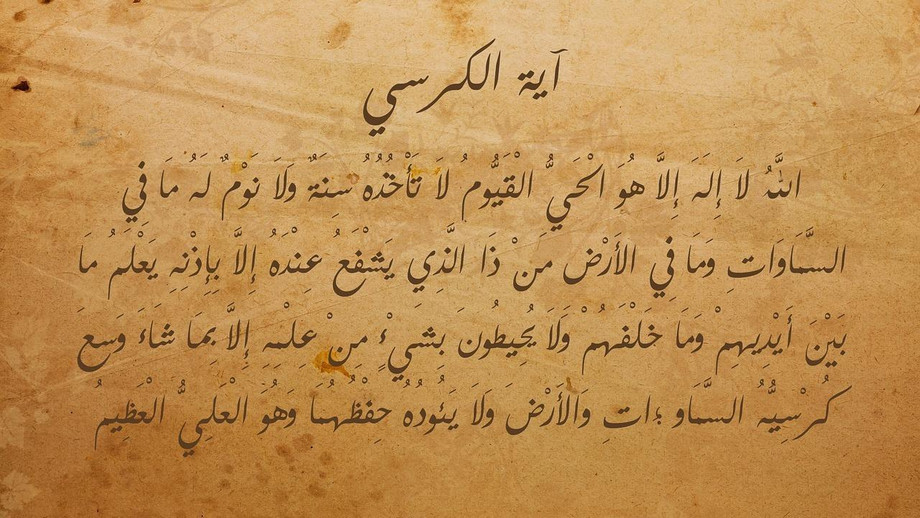Language plays a central role in shaping cultures and beliefs. In Islam, the use of specific words and phrases carries deep spiritual, cultural, and historical significance. These Islamic words are often rooted in the Arabic language, the language of the Qur'an, and they represent fundamental principles of the faith. The use of Islamic terminology extends beyond religious practice, embedding itself into the daily lives of Muslims, influencing how they communicate with each other and how they perceive the world around them. This article delves into the beauty and importance of some common Islamic words and their meanings, exploring how they reflect the essence of Islamic belief.
1. Allah (الله)
At the core of Islamic faith is the word "Allah", which translates to "God" in English. Muslims believe in one God, and Allah is the Arabic term used to describe the Supreme Being. This word is of great importance, as it emphasizes the monotheistic nature of Islam. Allah is viewed as the all-powerful, all-knowing, and merciful creator of the universe, and every action in a Muslim's life is intended to be in accordance with Allah's will.
Muslims often recite the phrase "Allahu Akbar", meaning "God is Great," to express admiration for Allah's greatness. The word "Allah" is also incorporated into daily prayers, showing the centrality of God's presence in a Muslim's life.
2. Bismillah (بِسْمِ ٱللَّٰهِ)
The phrase "Bismillah", which translates to "In the name of Allah," is another common expression used by Muslims before starting any significant task, such as eating, studying, or even beginning a journey. The full phrase, "Bismillah ar-Rahman ar-Rahim", means "In the name of Allah, the Most Gracious, the Most Merciful." This phrase is a constant reminder to Muslims that they should perform all actions in the name of God and seek His blessings.
By uttering "Bismillah", a Muslim acknowledges that everything begins with Allah's permission and seeks to make every action purposeful and blessed. It promotes mindfulness and humility, aligning one's intentions with divine guidance.
3. SubhanAllah (سُبْحَانَ ٱللَّٰهِ)
"SubhanAllah" means "Glory be to Allah" or "Exalted is Allah." It is often used to express awe or admiration for something remarkable in nature or life. Whether it's witnessing the beauty of the world or reflecting on the intricate design of the universe, Muslims use this phrase to praise the Creator for His perfection.
SubhanAllah also reminds Muslims to remain humble and reflect on the vastness of Allah's power, which is far beyond human comprehension. It is a frequent phrase of remembrance (dhikr), often recited to maintain spiritual awareness and gratitude.
4. Alhamdulillah (ٱلْحَمْدُ لِلَّٰهِ)
"Alhamdulillah" means "Praise be to Allah" and is commonly used by Muslims to express gratitude for blessings, whether big or small. It serves as a reminder to appreciate the gifts bestowed by Allah and to remain content in times of ease or hardship. In Islam, expressing gratitude is considered an important spiritual practice, and "Alhamdulillah" is a way to constantly acknowledge Allah’s mercy and generosity.
Muslims recite "Alhamdulillah" throughout the day, especially in their prayers, to reinforce the idea that everything they have and experience comes from Allah's will.
5. InshaAllah (إنْ شَاءَ ٱللَّٰهُ)
One of the most commonly used phrases in Islamic communication is "InshaAllah", which means "If Allah wills" or "God willing." It signifies the Islamic belief in divine destiny (Qadr). Muslims believe that nothing can happen unless Allah allows it, so "InshaAllah" is used when speaking about future events to acknowledge that the outcome is ultimately in Allah's hands.
By saying "InshaAllah", Muslims express hope and faith that Allah will make things possible, but they also recognize that human plans are subject to divine will.
6. Assalamu Alaikum (ٱلسَّلَامُ عَلَيْكُمْ)
The greeting "Assalamu Alaikum" means "Peace be upon you" and is a standard greeting exchanged among Muslims worldwide. The response is "Wa Alaikum Assalam", meaning "And peace be upon you too." This greeting reflects the Islamic values of peace and brotherhood. It promotes goodwill, harmony, and mutual respect between individuals, making it an essential part of daily interactions.
This simple yet powerful phrase highlights the emphasis Islam places on peace, both in personal relationships and the broader community.
7. JazakAllah Khair (جَزَاكَ ٱللَّٰهُ خَيْرًا)
"JazakAllah Khair" is an expression of gratitude, meaning "May Allah reward you with goodness." Muslims use this phrase to thank someone for their kindness, help, or good deed, invoking Allah's blessing as a form of appreciation. It reflects the principle that all rewards and recognition ultimately come from Allah.
Unlike typical expressions of thanks, "JazakAllah Khair" emphasizes the spiritual aspect of gratitude, asking Allah to provide divine blessings to the person being thanked.
8. La ilaha illallah (لَا إِلٰهَ إِلَّا ٱللَّٰهُ)
"La ilaha illallah" is the declaration of faith in Islam, meaning "There is no god but Allah." This is the foundation of Islamic belief, encapsulating the essence of monotheism. By proclaiming this phrase, Muslims affirm their belief in Allah as the one true deity and reject any form of polytheism or idol worship.
This phrase is part of the Shahada, the testimony of faith that all Muslims recite to confirm their belief in Islam.
Conclusion
Islamic words hold immense significance in the daily lives of Muslims, serving as reminders of faith, spirituality, and humility. From the simple greeting of "Assalamu Alaikum" to the profound declaration of "La ilaha illallah", each word carries deep meaning, fostering a connection with Allah and promoting values of peace, gratitude, and reflection. These terms are not just part of religious rituals but also integral to the way Muslims navigate their lives, shaping how they interact with the world and each other. Understanding these Islamic words provides valuable insight into the rich spiritual and cultural heritage of Islam.
For More Info:-





Comments